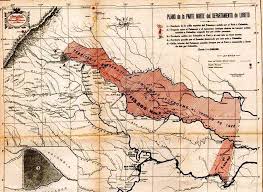Israel 2025: Future Prospects and Developments

Introduction
As the geopolitical landscape continues to evolve, Israel finds itself at a critical juncture as it looks toward the year 2025. The nation’s strategic decisions in areas like technology, energy, and diplomacy will significantly influence its future. Understanding these trends is vital for policymakers, investors, and citizens, as they could reshape not only Israel but also the broader Middle Eastern region.
Technological Innovations
Israel, renowned for its tech startups and innovation, aims to solidify its status as a global leader in technology by 2025. The Israeli government has made substantial investments in research and development, focusing on areas such as cybersecurity, artificial intelligence, and agricultural technology. For instance, the Startup Nation initiative, which supports entrepreneurship, is projected to lead to an increase in tech-related jobs by 30% in the coming years. This growth could stimulate the economy while promoting sustainable practices in agriculture and energy.
Energy Transition
Energy independence is another priority for Israel as it approaches 2025. With discoveries of vast natural gas reserves in the eastern Mediterranean, Israel is transitioning from oil dependence to a more diversified energy portfolio. The country has set ambitious goals for renewable energy, intending to produce 30% of its electricity from solar power by 2025. This shift not only aims to meet domestic needs but also positions Israel as an energy exporter in the region.
Geopolitical Challenges
Despite these positive developments, Israel faces complex geopolitical challenges. The long-standing Israeli-Palestinian conflict remains unresolved, and tensions with neighboring countries could escalate. International relations, particularly with the United States and emerging alliances in the Middle East, play crucial roles in Israel’s security. By 2025, the dynamics of diplomacy and military strategy will be pivotal in shaping Israel’s position in the region.
Conclusion
Looking forward to 2025, Israel stands at a crossroads marked by promising advancements and notable challenges. Its commitment to technological innovation and energy diversification positions it as a potential leader on the global stage. However, the unresolved geopolitical tension and need for diplomatic solutions underline the importance of stable governance and international cooperation. As Israel navigates the complexities of its future, these developments will be closely monitored by the international community, which will be watching as the country charts its path.









